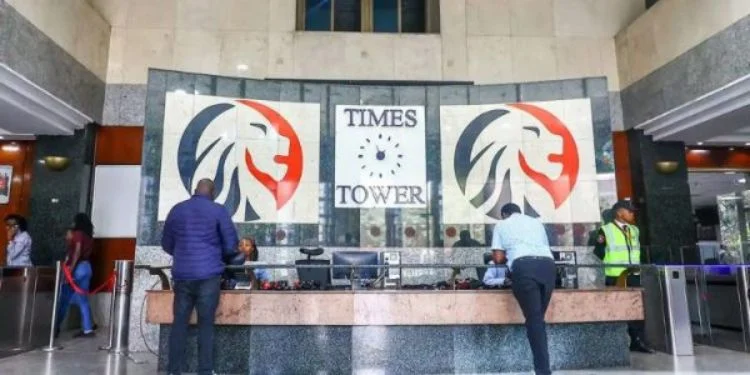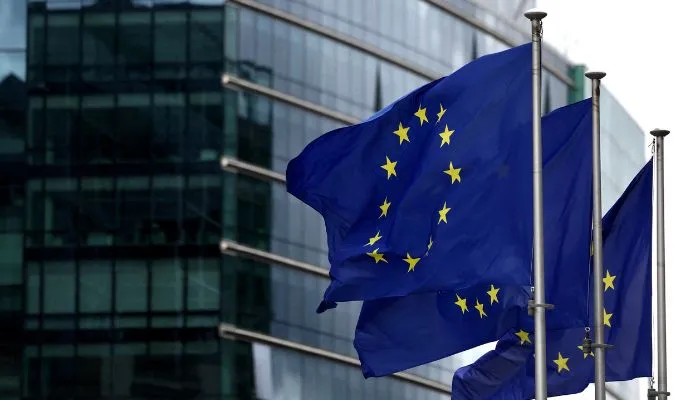In a development that has sent ripples through the international business community, Volkswagen’s protracted tax dispute with India has resurfaced, highlighting the challenges foreign investors face in the country. The German automotive giant is contesting a staggering $1.4 billion tax demand from Indian authorities, a move that has reignited concerns about India’s complex tax environment and its impact on foreign direct investment.
With India positioning itself as a global manufacturing hub under Prime Minister Narendra Modi’s “Make in India” initiative, attracting foreign investors remains a top priority. However, the lingering perception of bureaucratic hurdles and prolonged legal battles over taxation could deter multinational corporations from making long-term commitments in the country. Volkswagen’s legal battle underscores the existing tensions between foreign businesses and Indian tax authorities, raising broader questions about predictability, regulatory clarity, and ease of doing business in one of the fastest-growing economies in the world.
Background of the Dispute
The core of Volkswagen’s tax dispute revolves around its importation practices. Indian authorities allege that between 2012 and 2024, Volkswagen imported parts for 14 of its models, including some under the Audi brand, in separate shipments. This strategy, according to officials, allowed the company to pay lower taxes ranging from 5% to 15%, applicable to individual components, rather than the higher 30% to 35% duty imposed on completely knocked-down (CKD) units. CKD units refer to vehicles shipped in parts and assembled locally, attracting higher tariffs to encourage domestic manufacturing.
Volkswagen, through its Indian subsidiary Skoda Auto Volkswagen India, has vehemently denied any wrongdoing. In a legal filing, the company argued that the tax demand contradicts India’s import taxation rules and threatens its $1.5 billion investment in the country. The automaker emphasized that it had informed Indian authorities of its import strategies as early as 2011, suggesting that the prolonged delay in raising concerns has exacerbated the issue.
In its court filing, Volkswagen is blaming Indian officials for their “inaction and tardiness” in taking years to review shipment records, some stretching back to 2012. Had the reviews been conducted earlier, Volkswagen claims it could have challenged the move or re-evaluated its import strategy. The tax notice, issued after more than a decade of operations, puts “at peril the very foundation of faith and trust” that foreign investors expect when doing business in India.
Broader Implications for Foreign Automakers
Volkswagen’s predicament is not an isolated case. Several foreign automakers operating in India are embroiled in similar tax disputes, collectively amounting to approximately $6 billion. Notable cases include:
- Maruti Suzuki: The company faces tax demands totaling $2.4 billion, with some disputes dating back to 1986.
- Hyundai Motor India: The South Korean automaker is contesting tax demands worth $490 million, primarily related to customs duties.
- Honda Motor: Honda is dealing with tax disputes amounting to $323 million, mainly concerning income tax assessments.
- Toyota Motor Corp: The Japanese automaker faces tax demands totaling $272 million, related to both income tax and excise duties.
These disputes often revolve around the classification of imported components and the applicable tax rates. Automakers argue that their import practices comply with existing regulations, while Indian authorities contend that these companies are circumventing higher duties through strategic importation methods. The resulting legal battles have created uncertainty, making India a less predictable market for global automakers.
Historical Context: Vodafone and Retrospective Taxation
The challenges faced by foreign companies in India are not limited to the automotive sector. One of the most high-profile tax disputes involved British telecom giant Vodafone. In 2007, Vodafone acquired Hutchison Whampoa’s Indian assets, leading to a $2 billion tax demand from Indian authorities. The contention arose from India’s retrospective taxation policy, which allowed the government to levy taxes on transactions that occurred before the law was enacted.
After a protracted legal battle spanning over a decade, Vodafone won its case in 2020 at the Permanent Court of Arbitration in The Hague. The tribunal ruled that India’s tax demand violated the fair and equitable treatment provision of the bilateral investment treaty between India and the Netherlands.
Similarly, UK-based Cairn Energy faced a $1.4 billion tax demand related to a 2007 internal reorganization. After winning an international arbitration award in 2020, Cairn pursued enforcement actions, including legal proceedings to seize Indian assets abroad. In response to mounting international pressure, India amended its tax laws in 2021, abolishing retrospective taxation and offering refunds to affected companies, including Cairn and Vodafone.
Impact on India’s Investment Climate
Prime Minister Narendra Modi has been vocal about transforming India into a global manufacturing hub. Initiatives like “Make in India” aim to attract foreign investment by simplifying regulations and reducing bureaucratic hurdles. However, the persistence of lengthy tax investigations and substantial tax demands poses a significant challenge to these ambitions.
Government data from November 2024 indicates that pending arrears of service tax, customs, and excise duties amount to nearly $53 billion, with approximately 70% of this sum under dispute in litigation. In the realm of import tariffs alone, tax demands totaled $4.5 billion by March 2024, with a third of these cases pending for more than five years.
The backlog is further evidenced by the appeals tribunal for customs, excise, and service tax, which had approximately 80,000 cases pending as of 2023. With an influx of about 20,000 new cases annually, efforts to reduce this backlog have been largely ineffective. The slow pace of resolution has made companies wary of long-term investments, fearing that similar taxation challenges could arise unexpectedly.
Industry Response and Calls for Reform
The Volkswagen case has prompted a wave of concern among foreign companies operating in India. Tax advisors and legal experts report an increase in inquiries from clients seeking clarity on their import classifications and the potential for retrospective tax demands. There is a growing consensus that India’s tax administration needs comprehensive reform to enhance transparency and predictability.
Ameya Dadhich, a tax associate at global law firm DLA Piper, emphasized the need for an amnesty scheme to address longstanding disputes. He noted, “The government clearly recognized this now and redressed it, but it is unlikely old tax demand notices will be given any benefit. Such instances can deter foreign companies from investing heavily in India. An amnesty scheme will be helpful given that around 40,000 tariff disputes are pending.”
The introduction of a structured dispute resolution framework has been proposed by several industry bodies and think tanks. Experts argue that establishing a faster arbitration mechanism, modeled after international best practices, could significantly improve investor confidence. A transparent, time-bound approach to tax disputes, with clear guidelines on classification and valuation of imports, could prevent future controversies.
For foreign investors, India remains an attractive destination due to its vast consumer base, competitive labor costs, and growing economy. However, incidents like Volkswagen’s tax dispute serve as reminders of the regulatory complexities that businesses must navigate. As the case unfolds in Indian courts, its outcome could set a precedent for other multinational corporations facing similar legal challenges.
Conclusion
Volkswagen’s ongoing tax battle with India is more than just a corporate dispute—it is a test of India’s ability to provide a stable and predictable business environment. With foreign automakers and other global companies watching closely, the resolution of this case will send a strong message about India’s approach to foreign investment. Whether the government takes steps to streamline tax disputes or continues its tough stance on enforcement, the implications will be felt across industries.
For now, the world is watching how India balances its need for revenue with its ambition to become a top destination for global manufacturing.
Ready to take your career to the next level? Join our dynamic courses: ACCA, HESI A2, ATI TEAS 7 , HESI EXIT , NCLEX – RN and NCLEX – PN, Financial Literacy!🌟 Dive into a world of opportunities and empower yourself for success. Explore more at Serrari Ed and start your exciting journey today! ✨
photo source: Google
By: Montel Kamau
Serrari Financial Analyst
14th February, 2025
Article, Financial and News Disclaimer
The Value of a Financial Advisor
While this article offers valuable insights, it is essential to recognize that personal finance can be highly complex and unique to each individual. A financial advisor provides professional expertise and personalized guidance to help you make well-informed decisions tailored to your specific circumstances and goals.
Beyond offering knowledge, a financial advisor serves as a trusted partner to help you stay disciplined, avoid common pitfalls, and remain focused on your long-term objectives. Their perspective and experience can complement your own efforts, enhancing your financial well-being and ensuring a more confident approach to managing your finances.
Disclaimer: This article is for informational purposes only and does not constitute financial advice. Readers are encouraged to consult a licensed financial advisor to obtain guidance specific to their financial situation.
Article and News Disclaimer
The information provided on www.serrarigroup.com is for general informational purposes only. While we strive to keep the information up to date and accurate, we make no representations or warranties of any kind, express or implied, about the completeness, accuracy, reliability, suitability, or availability with respect to the website or the information, products, services, or related graphics contained on the website for any purpose. Any reliance you place on such information is therefore strictly at your own risk.
www.serrarigroup.com is not responsible for any errors or omissions, or for the results obtained from the use of this information. All information on the website is provided on an as-is basis, with no guarantee of completeness, accuracy, timeliness, or of the results obtained from the use of this information, and without warranty of any kind, express or implied, including but not limited to warranties of performance, merchantability, and fitness for a particular purpose.
In no event will www.serrarigroup.com be liable to you or anyone else for any decision made or action taken in reliance on the information provided on the website or for any consequential, special, or similar damages, even if advised of the possibility of such damages.
The articles, news, and information presented on www.serrarigroup.com reflect the opinions of the respective authors and contributors and do not necessarily represent the views of the website or its management. Any views or opinions expressed are solely those of the individual authors and do not represent the website's views or opinions as a whole.
The content on www.serrarigroup.com may include links to external websites, which are provided for convenience and informational purposes only. We have no control over the nature, content, and availability of those sites. The inclusion of any links does not necessarily imply a recommendation or endorsement of the views expressed within them.
Every effort is made to keep the website up and running smoothly. However, www.serrarigroup.com takes no responsibility for, and will not be liable for, the website being temporarily unavailable due to technical issues beyond our control.
Please note that laws, regulations, and information can change rapidly, and we advise you to conduct further research and seek professional advice when necessary.
By using www.serrarigroup.com, you agree to this disclaimer and its terms. If you do not agree with this disclaimer, please do not use the website.
www.serrarigroup.com, reserves the right to update, modify, or remove any part of this disclaimer without prior notice. It is your responsibility to review this disclaimer periodically for changes.
Serrari Group 2025
















